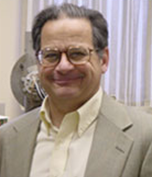
Thomas Hellman Morton
Professor of Chemistry, Emeritus
Thomas (Tom) Morton died on March 3, 2020, at the age of 73. He is survived by his wife, Kathryn, his son, Gregory (Duff), and his daughter, Julia. He was born on February 10, 1947, and grew up in Los Angeles, California. His parents, Arthur and Emmy Lou (Hellman) Morton, both had ties to the motion picture industry. Arthur Morton was a composer and orchestrator whose work is manifest in many classic TV and film productions. Tom attended Santa Monica High School, graduating in the class of 1965. He then went on to study the Classics (Greek) and Fine Arts at Harvard, earning an A.B. Magna cum Laude in 1968. Subsequently, Tom earned his Ph.D. in Organic Chemistry at the California Institute of Technology under the mentorship of two advisors, J. L. Beauchamp and R. G. Bergman.
In 1972, Tom began his professional career, serving initially on the chemistry faculties of Brown and Brandeis Universities. In 1981, Tom joined the faculty of the Department of Chemistry at the University of California, Riverside, where he remained until retirement. In 2018 he retired and became a Professor of the Graduate Division, an emeritus title that allowed him to continue to pursue his research.
During the first two decades of his career, Tom focused on designing and building apparatus to collect and analyze neutral products from the reactions of gas-phase ions. These studies led Tom to develop a physical description of gaseous ion-neutral complexation, which was groundbreaking. On the basis of this work he was given the Maccoll Award for Organic Mass Spectrometry in 1993. Also during this time period was a brief sojourn into research on the sense of smell that involved modifying the neuronal cells of living vertebrates (salamanders), resulting in a half-dozen papers on the subject, including a paper in the journal Science. During the latter part of his career, Tom focused on the structure of gas phase ions using experiment and theory, where the experiments were performed in collaboration with the free-electron laser group in The Netherlands. These studies focused on fundamental inter- and intramolecular interactions of biomolecules.
Tom was an outstanding and engaging teacher and lecturer of particular clarity. He was renowned among students and experts in his field. The delivered content was an admixture of his broad and deep knowledge of history, philosophy and the physical sciences, woven into unique analogies and insights. Apart from being a tireless teacher of graduate students, both in and out of the laboratory, and contributions to the instruction of large introductory classes, Tom made time to teach honors undergraduate students both in the classroom and the research laboratory, often as an overload to his regular teaching duties. Tom's efforts were much appreciated by students, and he received multiple awards based on their input, including Undergraduate Research Mentor of the Year (twice) and Honors Program Professor the Year.
Tom was a strong and vigorous contributor to the University at all levels. His door was always open to his colleagues. From mentoring junior faculty to discussing new research ideas, Tom was always ready to contribute. Remarkably, he has come close to publishing a collaborative paper with nearly every faculty member in the chemistry department at one time or another – an achievement that is unparalleled to date.
For decades Tom maintained two residences, one in Riverside and the other in Paris. While this allowed him to collaborate with colleagues in France and The Netherlands, it also seemed in keeping with the themes visible as far back as his undergraduate and graduate studies: art history, the classics and chemistry. Tom's spirit (and remarkable laugh) will live on in his many contributions to science and those he affected throughout his career.
Written by Dr. Christopher Switzer and edited by Darleen DeMason.